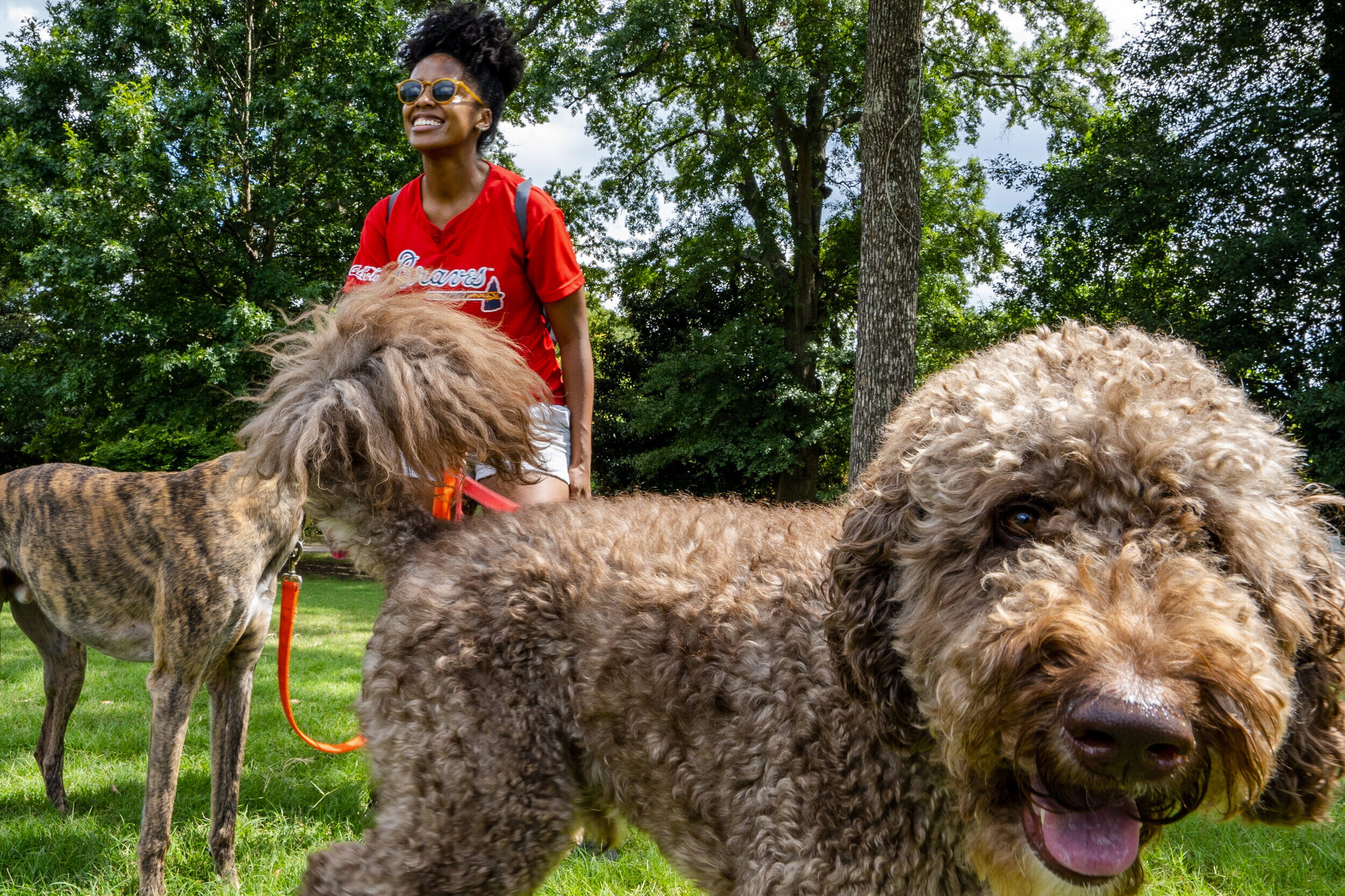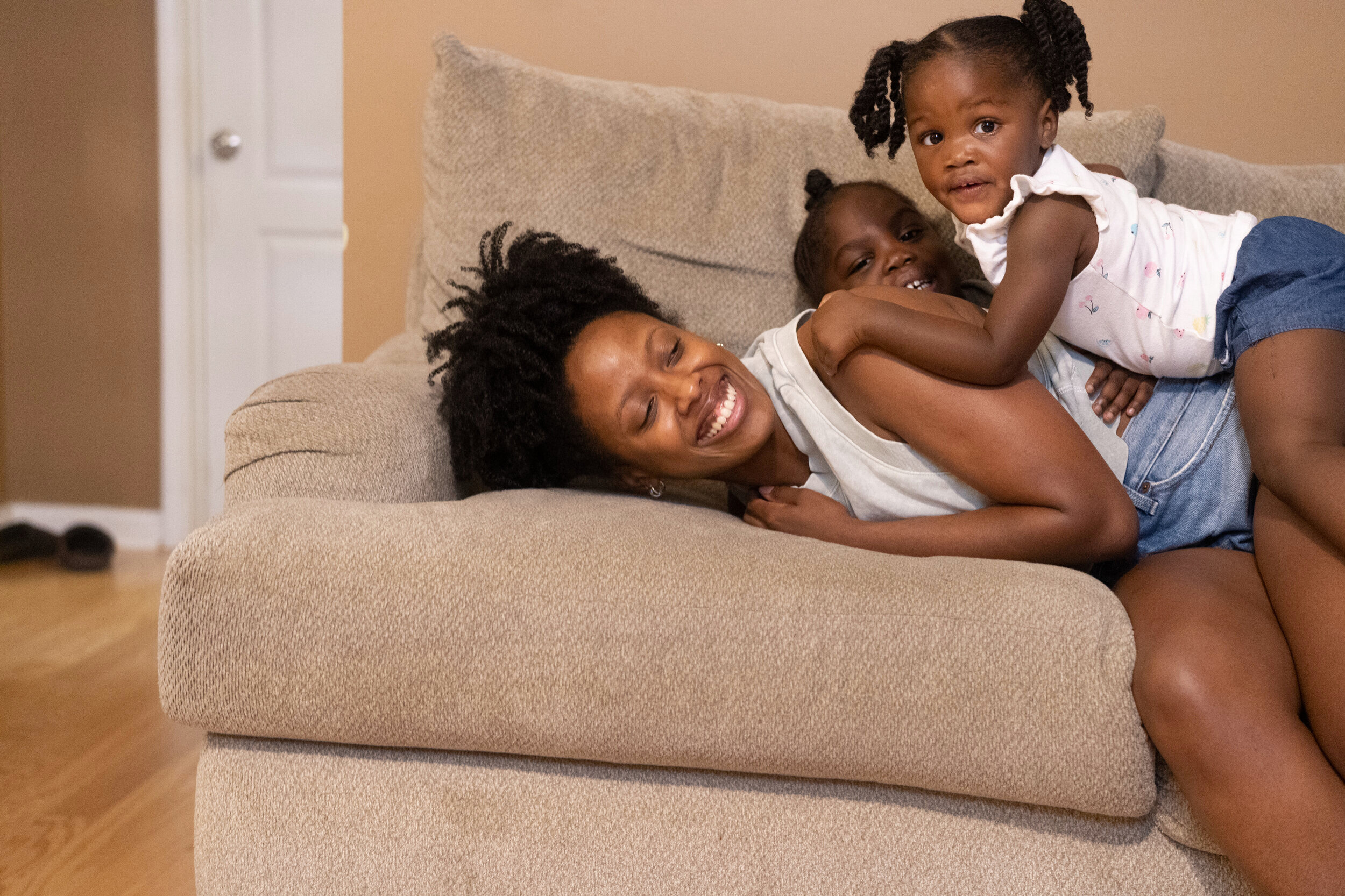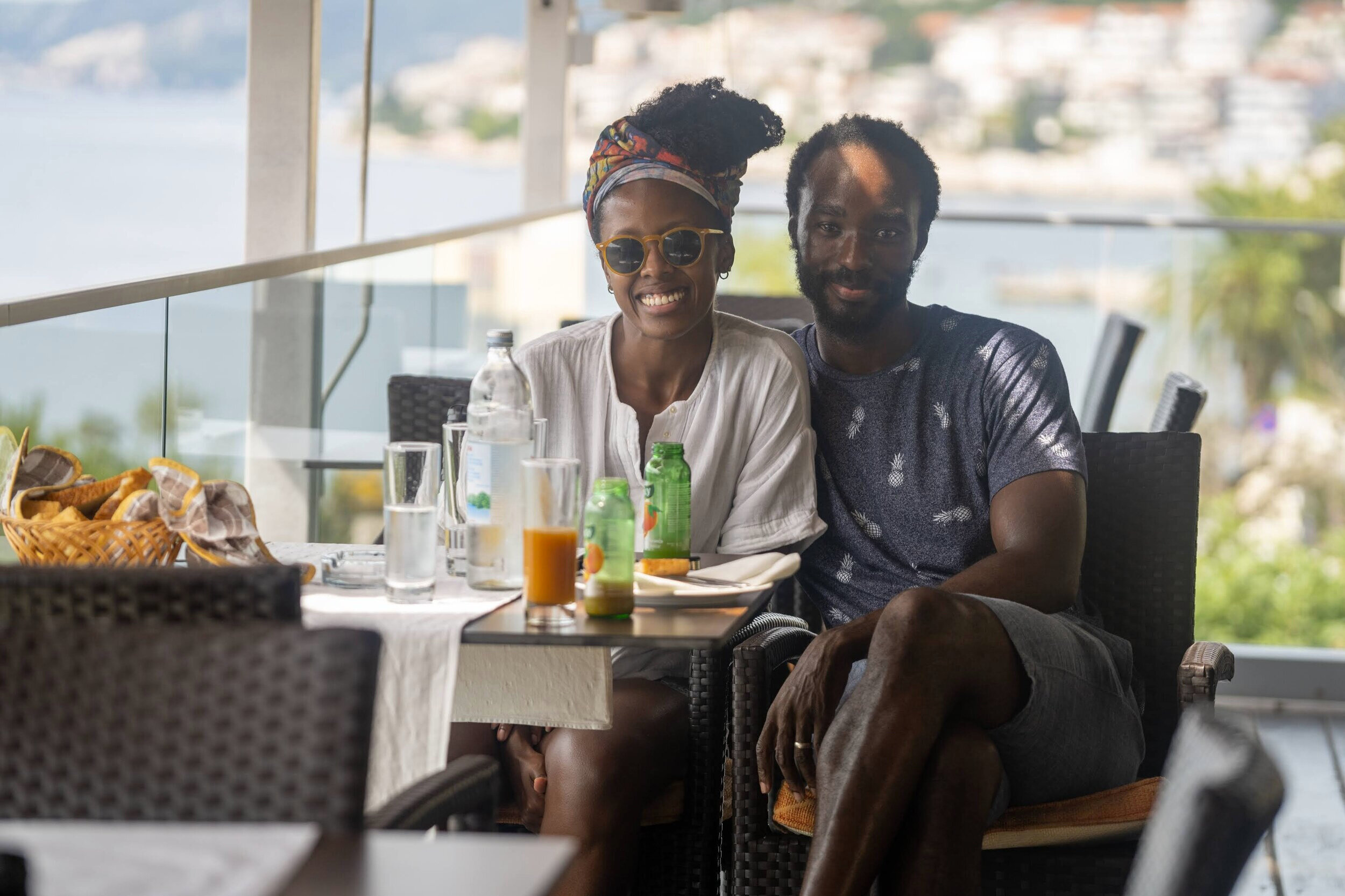Employee Spotlight: April Johnson
Designer. Leader. Videogame Enthusiast. We recently sat down with April Johnson to talk about her last 10+ years at Niles Bolton Associates. 2020 was an exciting year for the trailblazer as she was named a shareholder of the firm and became a member of the Urban Land Institute (ULI) Atlanta’s 12th Center for Leadership Class! After graduating from the Georgia Institute of Technology with a Bachelor of Science in Architecture and a Master of Architecture, April joined NBA in 2011. Working in an award-winning studio, she’s currently involved in a high-rise residential development and a range of student housing projects.
Read more about April’s career and leadership roles below…
What has been the most exciting opportunity you’ve been given since joining the firm?
Being offered a shareholder position is the most exciting thing that’s ever happened to me. In this role, I will be more involved in how we run our business, which I’m really interested in, and maybe there’s opportunity for me to be more useful in that arena. I’ve been focused on project-specific things, trying to be the best colleague I can be and the best architect to clients. I’m hopeful this position will allow me to be more useful on a firm-wide scale. We’ll see what the future holds, but for now it’s all very exciting.
You’re becoming a leader to younger staff in the firm. What advice would you give to someone right out of school just starting their career?
“When you get a task, give it your best effort, try to solve it, write down all your questions and assumptions, then talk to your PA.”
I studied architecture for six years at Georgia Tech. I thought I knew at least a little bit. Then I came to NBA, my first job out of college, and I remember thinking “Whoa. There’s a lot I don’t know.” I was helping a Project Architect, and I had way more questions than answers. I felt intimidated and guilty constantly asking the PA questions, but I wanted to be productive. My advice would be when you get a task, give it your best effort, try to solve it, write down all your questions and assumptions, then talk to your PA. That way you’re respectful of their time and dispose of guilt for disrupting them. By recording your assumptions, you’re learning to take responsibility, actively solve the problem yourself and improve your critical thinking.
April and her team on-site at Inspire, an off campus student housing development for Georgia Tech opening Fall 2021.
You are currently part of ULI Atlanta’s 12th Center for Leadership Class, a very competitive program to get into. What does this honor mean to you?
Our team leader, Mohamed Mohsen, was a former graduate of this program and said to me, “I think this would be great for you to try, you should apply for it.” I knew it was fairly competitive. After completing the written application, I had three one-on-one interviews with questions like “What type of leader do you think you are?” and “How could you benefit from the program?” I was elated when I found out I got in. Being a leader comes easy to some people, and for others it’s an acquired skill. It’s something I’m trying to improve upon personally, so the timing of the program was perfect.
What does the program involve? What is required of its participants?
Center for Leadership (CFL) is very socially based. There’s typically a lot of networking events, but the social aspect is a little different during COVID-19. Even absent of in-person events, they’ve done a great job making it work. Someone comes and speaks [virtually] every month who is a leader in whatever topic we’re covering: development, transportation, finance, etc. CFL touches every aspect of the built environment— it’s all types of professionals, not just architects or developers. It’s been helpful for me to hear about their jobs related to the built environment since I normally don’t communicate with them. There’s so much work that goes into projects before architects are even contacted. My class has also been working with a nonprofit, The Historic District Development Corporation (HDDC). HDDC has goals and initiatives related to a district they’re trying to form. They want us to identify the boundaries, and do feasibility studies on similar districts with related goals and objectives. It’s entirely foreign to what I do on a day-to-day basis. Completely outside of my wheelhouse. The whole experience has been awesome.
What have you learned so far from being in the program?
“It’s been a great exercise to get out of my comfort zone and apply some of the tools I’ve built as an architect to a completely different problem.”
Working with HDDC has been a tremendous learning experience. It’s interesting how architects have a certain vocabulary, and then there’s this whole nonprofit world. I’m figuring out how to pose a question to get a clear answer I can digest since I’m not familiar with the way they communicate. Their objectives are interesting and thoughtful, but not the type of design problem I’m accustomed to solving. My classmates and I are outside our element. It’s been a great exercise to get out of my comfort zone and apply some of the tools I’ve built as an architect to a completely different problem. Overall, the program has been an exercise of critical thinking.
What have you learned from your team?
I’m constantly learning little things here and there from everyone on my team. It’s no secret Mohamed Mohsen is awesome. Everybody knows it. I’ve learned so many things from him over the years. I’m hopeful I’ll be a fraction as good of a manager to someone as he is to me. Mohamed’s a master communicator, and that’s such a great skill to have. He always stays present, responsive, and thoughtful even after he’s been on consecutive calls. I don’t know how he does it, but I need some of that mojo. Mohamed’s very empathetic, which is so helpful in architecture. Rowan Stewart has also been a great person to learn from. He has this even-keeled, go with the flow personality. It’s really important to make people feel appreciated, but to also tell them things they need to work on. Rowan does a good job of letting me know when I’m doing well and giving me constructive feedback. Grant Robinson is another person who comes to mind. Grant’s able to easily maintain calm, no matter how crazy things get. He’s extremely efficient with his time. He repels negativity and is always insightful and pleasant. I need to figure out how to be more like Grant.
What types of projects have you recently been working on?
I’m working on an off-campus housing community at UC Berkeley called Identity. It has definitely been the most challenging project I’ve worked on recently. It’s been interesting and a great learning experience. The jurisdiction and permitting process in Berkeley is different than what I’m used to. Sustainability and seismic requirements are written into the building code in California, and it’s not as optional as it is in other places. Becoming more exposed to various ways of building in other parts of the country has been extremely helpful and eye opening.
Do you have a project that stands out in your mind?
One of the first projects I worked on at NBA was One12 Courtland, an off-campus housing project for Georgia State students. It’s a 16-story concrete tower attached to an 8-story steel-framed hotel, which we renovated. The construction type and connection between the two buildings were complicated. This was early in my career, and I learned so much. I can’t tell you how many times a mechanical engineer called me, they’d use a word that had me thinking, “I don’t know that word” and I’d have to Google it. This project and Identity are different scales, but both have been extremely educational for me.
“If I do a good job, people at NBA have always noticed. I’ve never felt undervalued here.”
What’s been your favorite thing about working at NBA?
There’s a lot of good things about working here. The people are probably at the top of the list. I really enjoy working with my immediate team and the firm at large. If I do a good job, people at NBA have always noticed. I’ve never felt undervalued here. If I’m on a call or have a complicated problem, I’m holistically confident someone at NBA will be able to help me. We have such a wealth of knowledge here. There are so many great, smart folks.
How did you get involved with accessibility codes?
Over the years, I’ve worked on projects with tough accessibility codes. Dan Meacham, a principal at NBA, is widely respected within the industry for his expertise on accessibility. I started asking Dan questions, and I’m forever grateful for him taking time to explain things to me. He doesn’t just give me specific answers, he explains the why. He also gave me all his accessibility books. Our conversations have helped me develop better understanding for accessibility compliance. A lot of our clients hire accessibility consultants, so I get to see their reviews and Dan’s reviews. He copies me when he emails reviews to the team, and I’ll read through to see what he’s caught. Because I’m copied on these emails, people in the firm began reaching out to me with questions, and I became the middleman between them and Dan. People asking questions only accelerates the learning process. They’d ask me questions, and I’d go research the answer for them. I’ve also been helping my immediate team with this stuff. The more I can be exposed to is going to make me better at helping people.
Your first job was at Ben & Jerry’s Ice Cream Shop. Are there any lessons you learned from that job that you still carry with you today?
“I’ve learned how to put my ego aside and listen to other ideas, knowing that ultimately my job is to provide top-notch service to the client.”
One thing I learned is there’s a lot of subjectivity in how much ice cream goes into a scoop. Customers said to me, “That’s not a scoop. You need to give me more ice cream.” I quickly learned even if it was a scoop, I just needed to listen to the customer and give them more ice cream. It’s very similar to architecture because there’s so much subjectivity in what we do, and as architects there’s ego that can get in the way of a good idea. I’ve learned how to put my ego aside and listen to other ideas, knowing that ultimately my job is to provide top-notch service to the client. At NBA, we place a lot of emphasis on client happiness, and I think that’s why we have so many repeat clients.
What’s something people don’t know about you?
I have recently started playing a lot of video games as a way to de-stress. When I get bored of those, I like to play puzzle games. I also hike with my husband a lot. Some of our favorites places to go are Sweetwater Park, Cochran, and Red Top Mountain.
What do you see for yourself and the firm 10 years from now?
I hope that we continue to expand into different markets and pursue projects in new jurisdictions. I think it’s awesome that we acquired DYE | NBA Aviation. I hope for myself personally that I continue to grow, learn more about the business side of things at NBA and be a better architect. I hope I keep working on new types of projects and learn as much as I can about architecture.
















